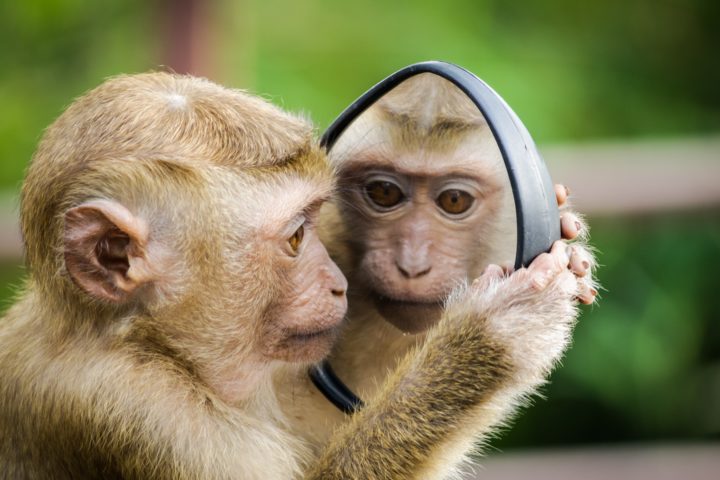“Remember to think about a funny joke before our meeting today!” For some, this is just another bad joke from your toolbox, but for others, it’s one additional trick for an anxiety attack. For me, it depends on the day. The person asking this means good, but the results can be way more horrible for a particular individual.
In today’s society, the loudest voice in the room often commands the most attention. It’s an environment where extroverted behavior—think big gestures, rapid speech, and high energy—dominates, leaving those who prefer quieter, more thoughtful approaches feeling marginalized. Like a great anonymous thinker enlightened me, this is “tyranny of the loudest.” This phenomenon creates a social imbalance where introverts are ignored and discouraged from contributing because they feel their voices won’t be heard.
This issue extends beyond mere social gatherings. It infiltrates workplaces, schools, and family dynamics, where fast-paced conversations and extroverted games can shut out quieter personalities. In a family of socially selective individuals, as we have, this is an everyday trade. Still, for example, in families with more extroverted and social individuals, our “together, alone” seems a very odd solution.
How Extroverted Dominance Plays Out
There’s an unspoken rule in many group settings: if you’re not talking, you’re not contributing. Extroverted people often take charge of conversations with ease. They engage in light-hearted banter, improvise jokes, or introduce “silly games” as icebreakers. These activities are designed to energize the room and create engagement but disproportionately favor those who thrive in fast, social environments.
These activities can be exhausting for introverts or even those who are bit both and are called ambiverts. They prefer more deliberate and meaningful conversations, not quick exchanges filled with superficial energy. When they don’t immediately jump into the conversation, they’re often perceived as disengaged, uninterested, or even “anti-social.” In reality, they’re reflecting, processing, and weighing their words—valuable traits that aren’t always celebrated in a world that rewards loudness over substance.
The Unspoken Social Pressure
The crux of the problem is the unspoken assumption that louder, more outgoing people have better ideas. This myth not only undervalues quiet thinkers but also suppresses them before they even attempt to engage. Introverts often feel that speaking up in a loud, boisterous environment is futile, especially when they know their contributions will be overshadowed by extroverted dominance.
Instead of challenging these dynamics, many introverts retreat further into themselves, reinforcing the cycle. They play a passive role not because they need insight or opinions but because they believe it’s not worth the effort if no one will listen.
This is a silent form of exclusion, where the rules of engagement are skewed toward the extroverted majority. Meetings, social gatherings, and brainstorming sessions can feel like battlegrounds where the fastest, loudest voices win by default while introverts’ ideas go unheard or unspoken altogether.
Introverts Don’t Argue Because They Expect to Be Ignored
One of the most overlooked aspects of this dynamic is that introverts often don’t even try to argue or present their ideas in extroverted settings. Not because they lack conviction but because they’ve learned from experience that their more nuanced or thoughtful contributions will either be interrupted, misinterpreted, or brushed aside.
Many introverts prefer written communication or small-group discussions where ideas are shared in a less combative and more thoughtful way. However, in environments where extroverted actions and games dominate, these alternatives are rarely offered, leaving introverts without a platform.
When Peaceful Surroundings Unleashes Your Extroverted Side
Many people believe they’re introverts simply because they enjoy solitude, but a more profound need for peace and tranquility often drives this preference. True introversion isn’t always about being alone; sometimes, it’s about reserving energy for people and environments that don’t disrupt your inner calm. Surprisingly, you might be more extroverted when you’re around those who bring you peace, as these connections recharge rather than drain your energy. The misconception that enjoying solitude automatically means introversion overlooks the power of peaceful companionship, where even an introvert can thrive in the right company. It’s possible to feel introverted in loud, chaotic settings yet become naturally extroverted around individuals who offer peace. Ultimately, it’s not just about being alone—it’s about creating a peaceful space where you can be your most authentic, extroverted self without feeling drained or overwhelmed.
A Call for Balance
The tyranny of the loudest is not about introverts versus extroverts; it’s about creating balance. Making room for quieter voices is crucial in a world that favors the loud. Introverts bring deep thinking, careful reflection, and a thoughtful approach to the table—qualities often overshadowed by extroverted actions and games. So pause and reflect, give people time to think before you rush into the next subject or funny joke, and encourage alternative forms of contribution. Be mindful when choosing your icebreakers to amplify introverted voices from the group. By building environments where both extroverts and introverts can thrive, we can facilitate richer conversations, more inclusive cultures, and ultimately better outcomes for everyone.
Let’s break the cycle of silencing through noise and embrace a world where listening is even more valuable than speaking.




